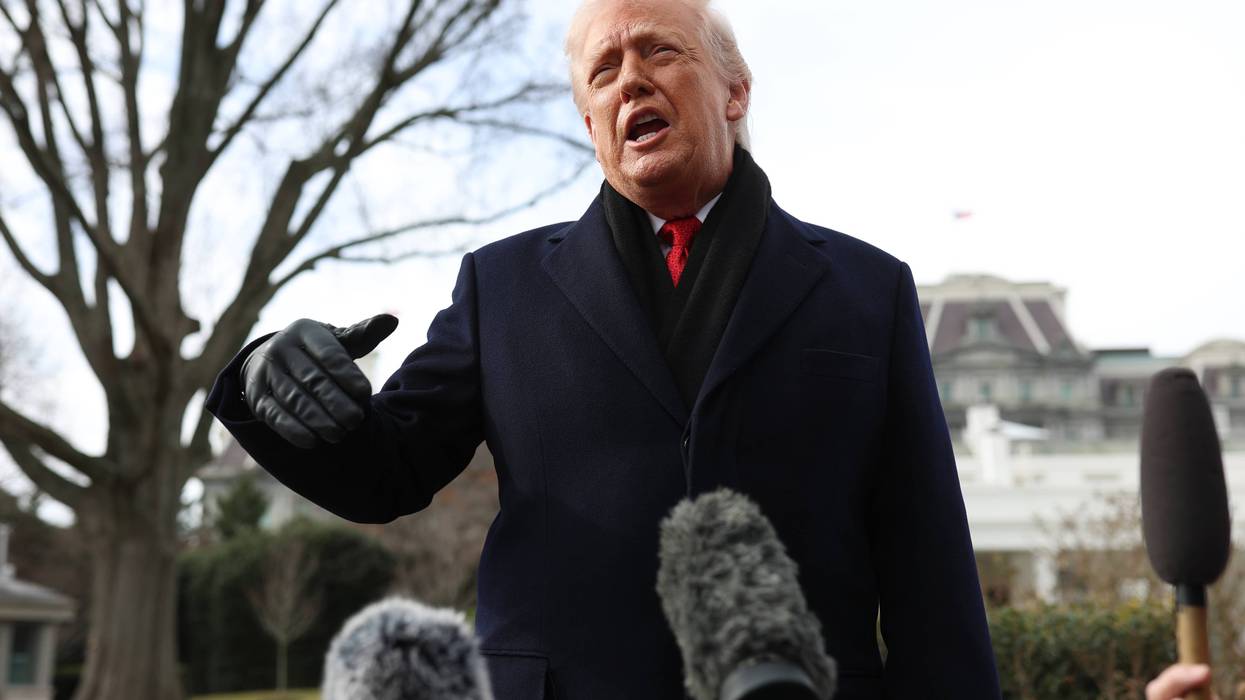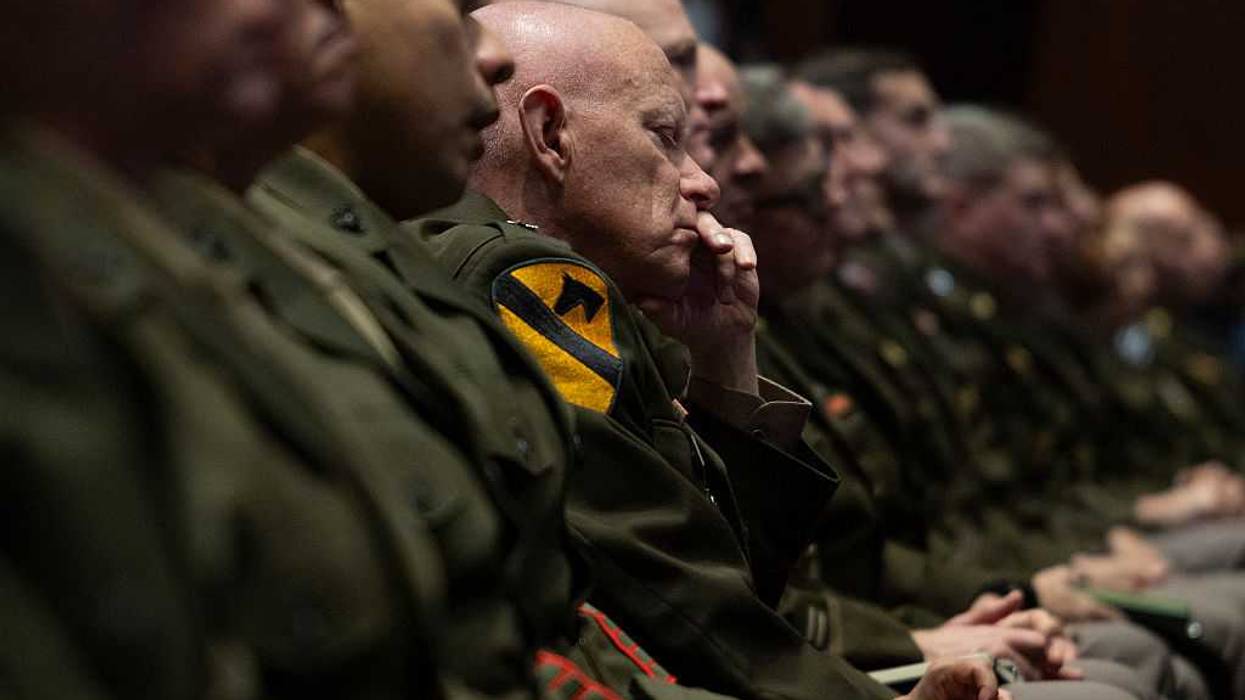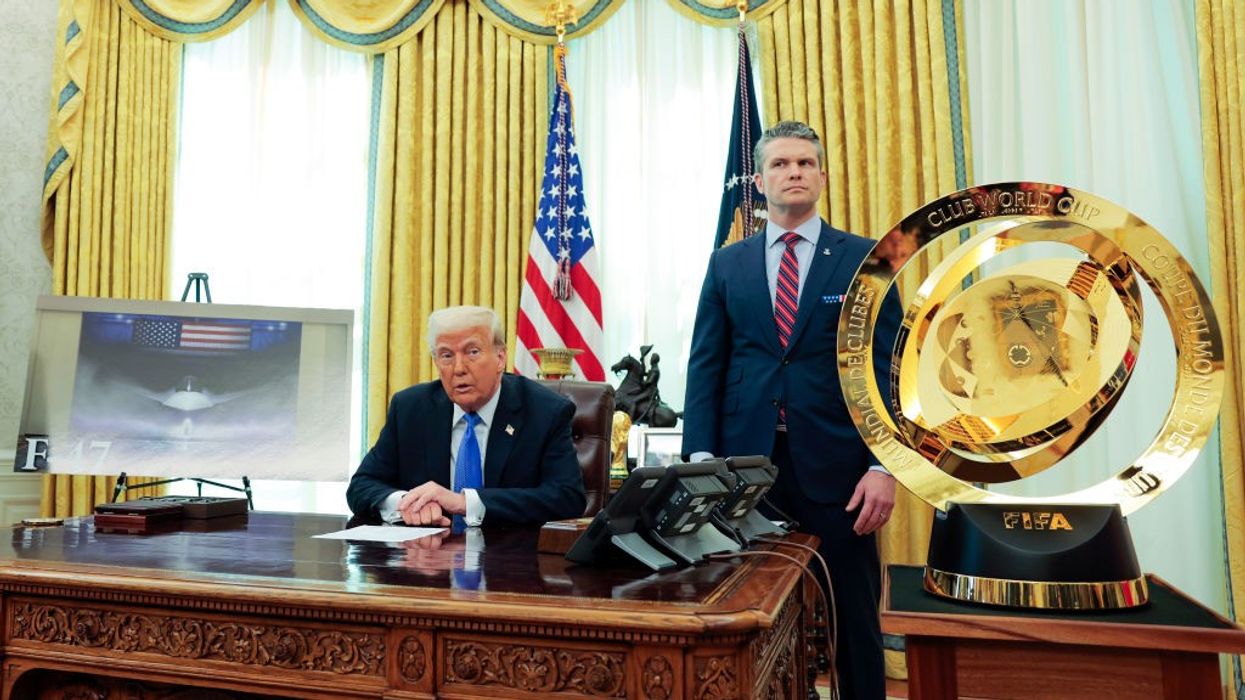Other forces have also been at play. Witness the emergence of the Global South as a powerful force. South Africa had the temerity to challenge the Western assisted Israeli genocide in the International Court of Justice. The BRICS (Brazil, Russia, India, China, and others) are contesting US economic dominance. And the Emirates have emerged as a powerful economic and political force with leverage over Trump.
The strategy is also a mutant offspring of the information revolution and of an extreme right-wing Supreme Court that played a central role in birthing an immense concentration of wealth resulting in the rise of new and anti-democratic elites reminiscent of feudal era princes, lords, and masters.
The strategy is contradictory, ignorant, and white supremacist; written in highly accessible language designed to win support of the MAGA masses.
Thus, a powerful sector of the US billionaire elite has developed a revised, destructive, and nationally self-destructive strategy to reinforce their privilege and power for the still emerging multipolar world disorder.
The Trump strategy is painful to read. It reeks of white supremacist rhetoric and policy commitments. It begins with fawning and obsequious praise of our Great Helmsman, Trump. And it is rife with braggadocio that belies observable reality, for example the boasts of having obliterated Iraq’s nuclear program and ending eight wars including Gaza, Rwanda-Democratic Republic of Congo, and Thailand-Cambodia. But the strategy does crystallize what was implicit during Trump’s first term in office and what we have witnessed and suffered in the past very painful year.
There is also the truism that foreign policies are manifestations of domestic priorities. From reinforcing white supremacy to authoritarianism and kleptocracy, this is also the case for the Trump-MAGA strategy.
Analysts across the country and foreign leaders have been stunned by the strategy’s declaration of the end of Pax Americana, the confession that global hegemony is a “fundamentally undesirable and impossible goal.” Richard Haass, formerly the president of the liberal Council on Foreign Relations, declared that the strategy is “ the biggest redirection of US foreign policy since the end of WWII and the dawn of the Cold War…” Chinese officials describe it as “moving from unipolarity to multipolarity." And Russians have not been shy about saying that it is consistent with their vision. European leaders are panicked.
How the World Sees the Strategy
Chinese leaders, since their pursuit of new great power relations in the Obama era, see the new US military and economic priorities as the logical consequence of US post-Cold War “hegemonic failures”: failed and disastrous imperial wars, its economic fragility, social and political fragmentation, and the worldwide perceptions that the US is no longer invincible.
Walden Bello, among the most inspired and inspiring Asian analysts and progressive political leaders, describes the strategy as a compromise document negotiated between three forces in Trump’s coalition: Maximalists who “still cling to the dream of American dominance," Specifists led by Elbridge Colby at the Pentagon and his allies “who believe America must retreat from Europe and the Middle East to focus single-mindedly on China,” and Continentalists or “neo-Monroeists, led by Stephen Miller and Vice President JD Vance, “ who advocate “an almost hermit-like retrenchment, turning the US into a fortress continent.”
In Europe, where fear has abounded that the United States would abandon its continental protectorate, German Chancellor Friedrich Merz declared the end of Pax Americana. Carl Bildt, the former Swedish prime minister, warned that the strategy places the US to the right of the extreme right in Europe. And reflecting an increasingly shared belief, a researcher at the European Council on Foreign Relations declared that “the West as it used to be no longer exists.” And he is right.
The strategy has also sown panic among US neoconservatives and liberal imperialists. Speaking for many, Anne Applebaum remarked that it is “hard to think of another great power ever abdicating its influence so quickly and publicly.” And for some, the New York Times eight-page special opinion section which argues that the US military has been “overmatched” by China provides a path back to “normalcy.” It urges still greater military spending, focusing on creating greater AI and cyber warfare capabilities, and returning to the era when the Pentagon had 51, not 5, primary military contractors.
Extending the MAGA Counterrevolutionary Agenda
The strategy is contradictory, ignorant, and white supremacist; written in highly accessible language designed to win support of the MAGA masses.
The historian Heather Cox Richardson was clear that the National Security Strategy is explicit in its goal of creating a "white supremacist country," rejecting immigration, and "'restoring Europe’s civilizational self-confidence and Western identity.” We hear echoes of Nazi and Charlottesville “great replacement” rhetoric as code words and dog whistles such as “restoration and reinvigoration of American spiritual and cultural health,” defending and preserving “civilization,” and “strong traditional families that raise healthy families” appear throughout the document.
While the strategy pledges the “predisposition to non-interventionism,” gunboat diplomacy continues apace with the largest US naval flotilla since the Cuban Missile Crisis assembled off the coast of Venezuela.
Its featured first goal is to establish “full control over our borders.” Why? Because “mass migration has strained domestic resources, increased violence and other crime, weakened social cohesion… undermined national security.” This despite actual crime statistics that immigrants are one-third less likely to be imprisoned than those born in the US, that construction and agricultural employers are hurting as tens of thousands of dedicated workers are deported, that fewer young workers mean weakened Social Security and support for our aging population. And our universities and industries that depend on attracting the best and brightest from around the world are deprived of essential human capital.
If that weren’t enough, the strategy pledges to “root out” diversity, equity, and inclusion in foreign, as well as domestic, policy—one other way that Trump and MAGA are sabotaging the nation’s foundations.
And on the subject of contradictions, while the strategy pledges the “predisposition to non-interventionism,” gunboat diplomacy continues apace with the largest US naval flotilla since the Cuban Missile Crisis assembled off the coast of Venezuela that is illegally sinking boats, murdering sailors in clear contravention of international law, and enforcing a blockade to impose regime change in Venezuela, and by extension Cuba.
Prioritizing Commerce and Profits
Soon after Donald Trump’s reelection a former senior US arms control diplomat was asked by his Russian interlocutor what Trump’s foreign policy priority would be. The answer: Trump’s first, second, and third priorities would be doing all that he can to enrich himself and his family. Not surprisingly we have been delivered the country’s most mercantile foreign policy agenda in more than a century. Access to other nations’ raw materials and markets are the priority, and, in another break with at least three generations of foreign policy rhetoric, the strategy is explicit that human rights concerns will not be a factor that interferes with US commercial interests and that the US won’t be imposing "democratic social change.” The New York Times: put it well when it carried a report saying, “The world as seen from the White House is a place where America can use its vast powers to make more money.”
What is its agenda? Seeking “balanced trade,” access to resources, protecting supply chains, and “reindustrialization.” Never mind that despite Trump’s devastating tariffs, which are increasing costs for Americans and alienating much of the world, offshored manufacturing is NOT returning to the US. Other commitments include maintaining the “dollar’s global reserve status,” pushing back against “Non-Hemispheric competitors'" economic inroads in “our hemisphere,” and the insistence on Latin American nations granting no-bid contracts to US companies. Taiwan’s value is boiled down to semiconductors and serving as a geopolitical cork, US forces are to maintain a "free and open Pacific” for trade purposes, and Saudi Arabia and the Emirates are seen as resources for investments. “Every US Government official that interacts with these countries should understand,” US diplomats and the world are told, “that part of their job is to help American companies compete and succeed.”
Geopolitics
After conceding that the US will not seek to control developments in every corner of the world, the strategy opts to maintain US primacy via balances of power and consolidating spheres of influence, not that China is to have a sphere. Consistent with its Biden and Obama predecessors, we are to be reassured by the Trumpian commitment to building the “world’s most powerful, lethal, and technologically advanced military,” ostensibly to “protect our interests” and to maintain the world’s “most advanced economy.” It allows no light to shine between the Trump agenda and the New York Times’ call for increased US military spending to modernize the US military industrial base, to maintain the world’s most deadly nuclear arsenal, and to divert hundreds of billions of dollars to military contractors to build Trump’s “Golden Dome” of missile defenses that will never work.
The strategy is consistent with the Jesse Helms-John Bolton insistence on sovereignty—personal and national. This should be read as white individualist sovereignty and rejection of international law, the United Nations, and foreign aid on which millions of human lives have depended. Moreover, the order in which the strategy addresses geopolitical regions is telling. First the Western Hemisphere, then Asia, then Europe, then the Middle East, and finally Africa
Europe
But let me begin with antecedents to the Trump-MAGA animus toward Europe. More than 200 years ago, as he retired from the presidency, George Washington warned the newly independent nation to avoid dangerous European entanglements. Prior to World Wars I and II, powerful isolationist movements opposed the US entering those wars. Decades later, in 2003, anger in response to French resistance to joining the US in its Iraq War for oil led to congressional dining rooms renaming French fries as “freedom fries!”
Since 1945, Western Europe has been a US protectorate. When NATO was founded in 1949, Lord Ismay, the alliance’s first secretary general, observed that its purpose was to keep Russia out, Germany down, and the US in. Now, after NATO’s expansion to Russia’s borders, European economic competition as well as collaborations with the US, Russian President Vladimir Putin’s invasion of Ukraine, and the reelection of a president more aligned with Russian authoritarianism that European liberal and social democracy, the strategy makes clear that the US will no longer guarantee Europe’s security. Europe must make its way between the hammer and anvil of Russian military power and China’s economic juggernaut. With the strategy’s mercantilist priorities, Europe is primarily valued for its trade and investment opportunities,
The strategy distances the US from NATO and brings it closer to Russia, which is seen as small potatoes compared with China. Moscow is a major nuclear power, but not an economic power. It makes clear that despite its ambitions Ukraine cannot join NATO—something that neither former President Joe Biden nor the most powerful NATO allies would tolerate. And as Trump insists that European NATO nations must take the lead in attending to their own defense, he simply offers to mediate between Europe and the Eastern powers, not to protect it. Worth noting, Walden Bello writes that this appears to include “Russian suzerainty in Eastern Europe.”
As economic security is traded for military capabilities, it further opens the way for fascist forces to gain power.
It is no secret that Trump, like Putin, has little patience for democracy, and this illuminates an underreported dimension of the strategy. Contagious thoughts travel. Thus, by their very existence, European democracies pose political and cultural threats to autocracies—American as well as Russian or Chinese. Ideologically, as well as economically and militarily, a growing number of European leaders now experience the US as a “security risk” for Europe. In a clarion call warning, a Danish intelligence report advises that “the United States uses economic power, including in the form of threats of high tariffs, to enforce its will and no longer excludes the use of military force, even against its allies.” In the tradition of international relations mirroring the rules of the game among Mafia families, the fate of Copenhagen’s mineral rich and geostrategically vital (think ice melt in the Northwest Passage) Greenland colony is at risk.
Perhaps worse is the strategy’s commitment to support “like minded” and racist “patriotic” parties—extreme right-wing and fascist—across Europe. In barely disguised code, the strategy warns that Europe faces “civilizational erasure" necessitating US to support “resistance.” There were intimations of this policy transformation in Vice President Vance’s February Munich Security Conference speech; his expressed support for the fascist right Alternative for Germany party; and the administration’s embrace of Prime Minister Viktor Orbán in Hungary, Prime Minister Giorgia Meloni in Italy, and Marine Le Pen in France.
In response to the fragility of US commitments to NATO, European elites have turned to create a more unified European military, either to reinforce NATO or potentially as an independent power. Since Vance’s Munich speech, compounded by fears that Russian ambitions may not be limited to eastern Ukraine, this process has been on steroids. Pressure is on to create an integrated European military-industrial complex. To increase the number of troops under arms, conscription and other forums of voluntary enlistment are being reintroduced. The numbers of tank forces and warplanes are being increased, and pressure is on to increase AI and cyber-security capabilities. Germany now seeks to become the continent’s major land power. And off-camera diplomacy quietly continues over whether the French or British nuclear weapons should replace the US nuclear umbrella as the source of extended deterrence.
As the newly created Stop ReArm coalition warns, this vastly increased military spending also threatens the viability of social democratic welfare commitments. As economic security is traded for military capabilities, it further opens the way for fascist forces to gain power.
Reinforcing US Indo-Pacific Military Dominance and Containment of China
That Danish intelligence report reminds us that with “the USA’s increasingly strong focus on the Pacific Ocean” the pivot to Asia and the Pacific begun by President Barack Obama remains at the center of US military and economic policy.
Media reports have concentrated on the strategy’s economic, not military, competition with China, in its section “Win the Economic Future, Prevent Military Confrontation.” There we read about the focus on industrial policies, intellectual property theft, protecting supply chains and access to minerals and rare earths, fentanyl, and propaganda and influence operation. Gone is Biden-era confrontational rhetoric.
Yes, China is no longer described as a peer competitor. The strategy advises that “the Indo-Pacific… will continue to be among the next century’s key economic and geopolitical battlegrounds…we must successfully compete there.” But, like the magician who diverts our attention when she shuttles a pea under shells, the media misses the continuity of US imperialism dating back to the “opening” of Japan, Admiral George Dewey’s gunships in Manila Bay, and US forces joining in repressing China’s nationalist Boxer Rebellion. Despite Trumpian allergies to alliances, the strategy reports that “President Trump is building alliances and strengthening partnerships in the Indo-Pacific that will be the bedrock of security and prosperity long into the future."
Toward that end, the strategy stresses the US need to maintain dominance over the First Island Chain that extends from South Korea, through Japan, to Taiwan and the Philippines, extending westward to Australia. Instead of seeking regime change in Beijing, consistent with 80 years of building military alliances and creating hundreds of US military bases across the Asia-Pacific and Biden’s lattice-like network of Indo-Pacific alliances, Trump and company are explicit about containing China via balance of power dominance and Indo-Pacific alliances. Highlighted are the Biden era QUAD (US, Japan, South Korea, and India) and AUKUS (Australian, Britain, US) alliances. They are called to increase their burden sharing and move to burden shifting, the willingness to sacrifice their troops in US wars. And, to ensure their loyalty to Washington, the strategy calls for their collaborations into an “economic group” to ensure they don’t become “subordinate to any competing power.”
How serious is the competition? Two weeks after release of the strategy, US nuclear-capable bombers joined Japanese warplanes in a show of force. This came one day after Chinese and Russian bombers flew around western Japan to demonstrate Beijing’s rage at Japanese Prime Minister Sanae Takaichi's warning that Japan would move to defend Taiwan if it were attacked.
Three other US military commitments to contain China are worth noting. To enforce US “deterrence” of China, the strategy promises to “build a military capable of denying aggression anywhere in the First Island Chain” and the US will not tolerate “any unilateral change to the status quo in the Taiwan Strait.” This, we are told, will require still greater US spending—including for defense industry bases. It insists that the US will not tolerate a “competitor” attempting to control the South China Sea, across which one-third of world trade travels. And after maintaining strategic ambiguity over US commitments to Taiwan, we are now told that war there must be avoided because it would have “major implications for the US economy;" because the autonomous island provides direct access to the Second Island Chain (Japan, Guam, and Micronesia), and its loss could split Northeast and Southeast Asia into two theaters; and because it is a “key” to controlling the South China Sea.
Thus, it came as no surprise that within days of the publication of the strategy, the Trump administration committed to selling Taiwan $11 billion of advanced military equipment to help transform it into an unappetizing military porcupine.
Some believe that the strategy’s less than hysterical language about China was designed to ensure that our would-be monarch receives the adulation he believes is his due when he travels to the Middle Kingdom in March. But profit and business deals come first. Shortly before the strategy was released and the TikTok deal was done, Trump signed off on Nvidia selling its second-most advanced chips, with AI and military capabilities, to China. How many of these chips, reported to give China a boost in the AI race, will ultimately land in China has yet to be determined. That uncertainty may provide Trump with one dimension of leverage in future negotiations with Beijing. But if Trump limits the numbers and uses each shipment as leverage, the effects will be far less dramatic.
The Global South (Trump’s “Shithole” Countries)
Beyond the tectonic signaling of the end of the 80-year transatlantic alliance, media outlines have shared the shock of the “Trump Corollary” to the Monroe Doctrine, a naked recommitment to US Western Hemispheric neocolonialism and hegemony. It’s about who gets the money, about oil, and about the white nationalist obsession with race.
As we see in recent reports, the US Central, European, and African Commands are to be downgraded and integrated into a new International Command, with the transfer of some forces to the Western Hemisphere, and, we can assume, to the Indo-Pacific. Thus, we now have an aircraft carrier fleet and thousands of troops redeployed from Europe to Venezuela, and in the words of the strategy, to “address urgent threats in our hemisphere.” On the subject of ideological and political alternatives, it is worth remembering that the Cuban economy is dependent on Venezuelan oil.
On other fronts, the strategy isn’t hesitant in describing Washington’s ambitions for Latin America. Where the US has “the most leverage,” we are instructed that it "must be sole-source contracts for our companies.” And, with Trump’s racist fantasies of an invasion of as many as 30 million immigrants—criminals, rapists, drug dealers, and more—and Immigration and Customs Enforcement shattering families and communities across the nation, the strategy tells us that “the Era of Mass Migration is Over.”
Proverbs tells us that “a people without a vision will perish.” It thus behooves us to provide alternate visions of what real security is and how to achieve it.
Terrorism originating in the Middle East is no longer a major security concern. Since Trump bowed to Saudi monarchs in the opening months of his first term, and his son-in-law took $2 billion as a going away present, Trump and his family have been wed to the Saudi and Persian Gulf emirs. We saw Qatar’s influence when it forced the White House to impose an Israeli-Hamas ceasefire in the wake of Israel’s assassination of Hamas’ lead negotiator in Doha.
While Trump claims that Venezuela has stolen our oil under its soil, neither Trump nor Defense Secretary Pete Hegseth have yet to claim that it is our oil under Middle East sands. Instead, Saudi Arabia and the Emirates are described as a source and destination of international investment, including nuclear energy, AI, and military technologies.
Consequently, not unlike China, the strategy rejects previous commitments to encourage social and political change in the Middle East. It “accept[s] the region, its leaders and its nations as they are.” It commits our country to “prevent an adversarial power from dominating the Middle East, its oil and gas supplies.” In order to do so, it pledges the “revitalization of our alliances in the Gulf, with other Arab partners, and with Israel.” Along these lines, it celebrates its collaborations with Israel but does not name Trump’s complicity in Gaza genocide or that its missile attacks on Iran’s nuclear infrastructure came in the midst of negotiations with Tehran.
When it comes to Africa, the strategy has little to say about what Trump once described as “shithole” countries. It will look to “select countries” to “ameliorate conflict” as it seeks to “foster mutually beneficial trade relations.” The goal is to “harness Africa’s abundant natural resources and latent economic potential." So much for the end of colonial exploitation!
From Here
In a recent webinar about the “Security Strategy,” I was asked what then must we do? The challenge is as old as the commitment to building an empire in the Declaration of Independence, the genocidal conquest of a continent, the brutality of colonial conquests at the end of the 19th century, and President Dwight D. Eisenhower’s valedictory warning about the dangers of the military-industrial complex.
First and foremost is our responsibility to name and denounce the Trump-MAGA assault against constitutional democracy, against our security, and the well-being of rising generation, and people in other nations who are at the receiving and losing end of the strategy.
Proverbs tells us that “a people without a vision will perish.” It thus behooves us to provide alternate visions of what real security is and how to achieve it. My list begins with the non-utopian paradigm that served as the foundation for the end of the first Cold War. That was the concept of Common Security diplomacy that recognizes that security cannot be achieved against a rival, but only through difficult win-win diplomacy with competing nations. It has been observed that China has been able to take 600 million people out of poverty, and to create what is fast becoming the world’s most advanced infrastructure, in large measure because it has not wasted lives, wealth, and resources in wars for almost a half a century. Defending constitutional democracy and electing a US government committed to providing housing, health, food, and justice are essential places to begin. And there is no going back to those good old days that never really existed!



